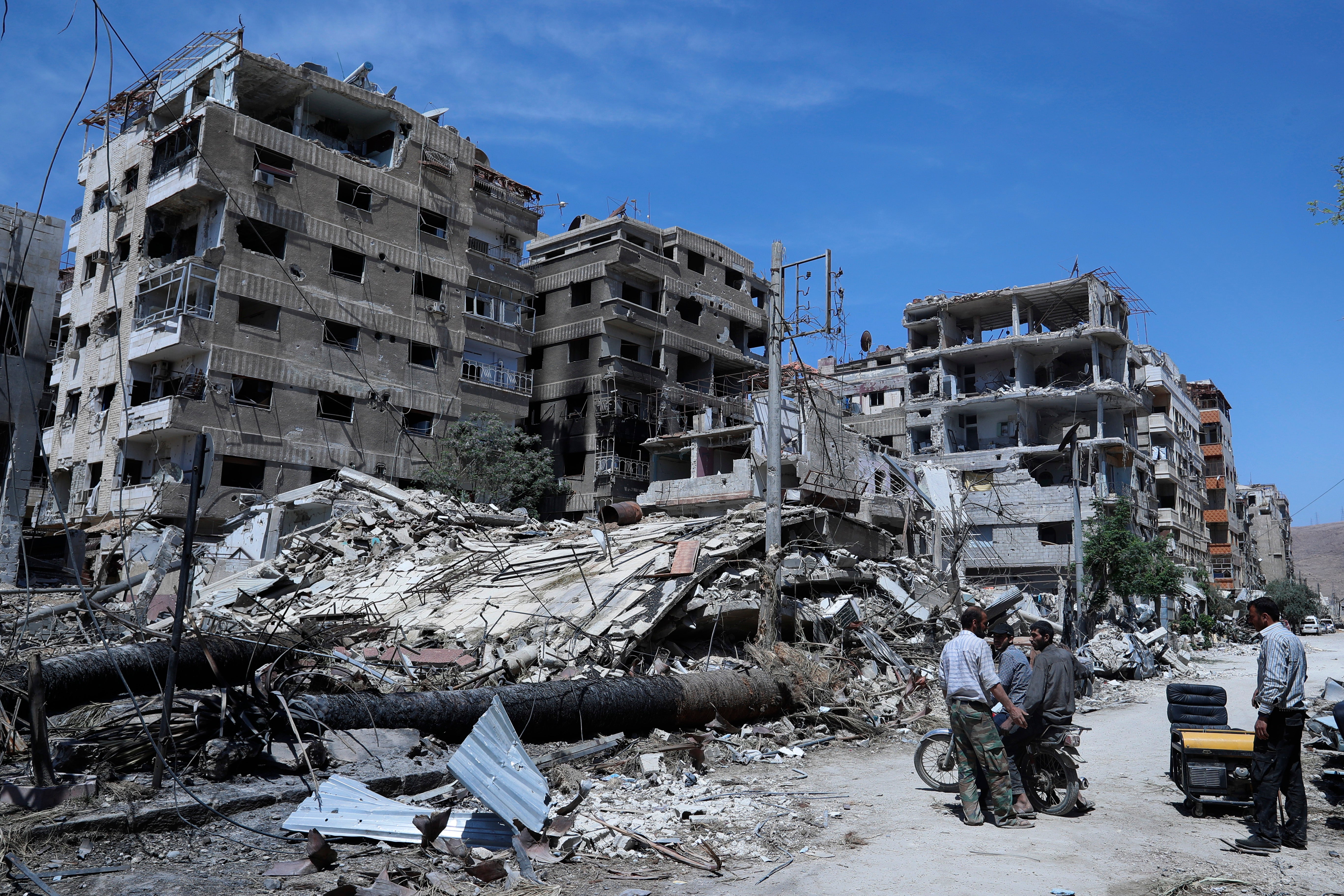Syria blasts chemical watchdog report on 2018 attack
Syria has dismissed the global chemical weapons watchdog's statement that investigators found “reasonable grounds to believe” Syria’s air force dropped two cylinders of chlorine gas on the city of Douma in 2018

Your support helps us to tell the story
From reproductive rights to climate change to Big Tech, The Independent is on the ground when the story is developing. Whether it's investigating the financials of Elon Musk's pro-Trump PAC or producing our latest documentary, 'The A Word', which shines a light on the American women fighting for reproductive rights, we know how important it is to parse out the facts from the messaging.
At such a critical moment in US history, we need reporters on the ground. Your donation allows us to keep sending journalists to speak to both sides of the story.
The Independent is trusted by Americans across the entire political spectrum. And unlike many other quality news outlets, we choose not to lock Americans out of our reporting and analysis with paywalls. We believe quality journalism should be available to everyone, paid for by those who can afford it.
Your support makes all the difference.Syria on Thursday dismissed the global chemical weapons watchdog's statement that investigators found “reasonable grounds to believe” the air force dropped two cylinders of chlorine gas on the city of Douma in 2018.
The Organization for the Prohibition of Chemical Weapons produced a detailed report following a fact finding mission that investigated the April 7, 2018 attack. Medical workers and activists said at the time more than 40 people were killed in the attack. OPCW inspectors headed to the site of the attack days later.
The United States, Britain and France blamed Syrian government forces and launched airstrikes. Syria and key ally Russia deny any chemical attack.
Douma was the final target of the Syrian government’s sweeping campaign to reclaim control of the eastern Ghouta suburbs of Damascus from opposition forces, who gave up the town days after the alleged chemical attack.
Syria's permanent representative to OPCW, Ambassador Milad Atieh, told reporters that the OPCW has been biased towards “Western positions."
“The OPCW’s report relied mostly on information obtained from countries hostile to Syria and some other media and social networking sites run by terrorist organizations,” he said. “The report contained false accusations aimed at increasing pressure and escalating Western positions hostile to Syria.”
Atieh claimed the report's methodology had “serious irregularities and defects” and false accusations that impacted its credibility, though he did not give any examples.
In an attempt to ensure accountability for crimes in Syria, the United Nations has established what it calls an “International, Impartial and Independent Mechanism.” It is mandated to preserve and analyze evidence of crimes and prepare files for trials in “national, regional or international courts or tribunals that have or may in the future have jurisdiction over these crimes, in accordance with international law.”
Atieh however accused the United States and Western countries of political interference in the UN mechanism.
U.S. Secretary of State Anthony Blinken in a joint statement with his British, French, and German counterparts last week commended the OPCW report and called on key Syrian ally Russia to “stop shielding Syria from accountability for its use of chemical weapons.”
“Syria must fully declare and destroy its chemical weapons program and allow the deployment of OPCW staff to its country to verify it has done so,” the statement read.
The ongoing conflict that started in Syria more than a decade ago has killed hundreds of thousands and displaced half the country’s prewar population of 23 million.
Syria joined the OPCW in 2013 under severe international pressure after a deadly chemical attack on a Damascus suburb.
—
Chehayeb reported from Beirut.